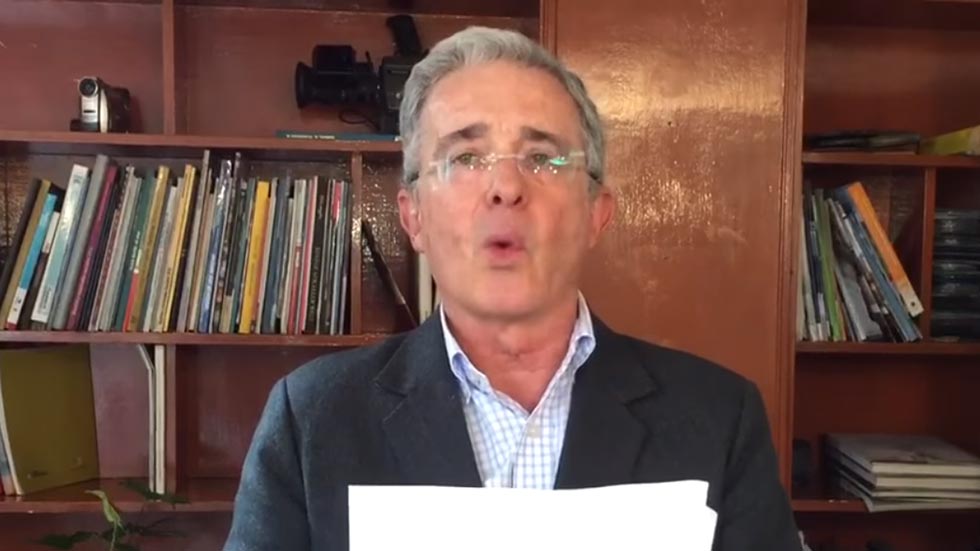Colombia’s conservative opposition blasted ongoing peace talks with the FARC on Thursday after the government and guerrillas announced a bilateral ceasefire and plans to disarm the guerrillas.
According to current opposition leader and former President Alvaro Uribe, the latest announcement to end the armed conflict “left the word peace injured.”
Colombia’s FARC rebels sign bilateral ceasefire, agree to demobilize within week after final deal
Without raising new objections, Uribe reiterated the opposition’s consistent arguments against talks with the FARC and repeated 14 times in one statement that the peace talks “left the word peace injured.”
“The word peace is left injured with the promotion of terrorist group FARC to the condition of partner of the State, or para-state or paramilitary, under the pretext of fighting other criminals,” said Uribe.
Additionally, “the word peace is injured by the firing squad validation of [former Cuban president] Fidel Castro, his communist dictatorship, and the bloody tyranny of [late Venezuelan President Hugo] Chavez and Nicolas Maduro,” the current president of the neighboring country.
Colombia’s peace deals in depth: End of Conflict
Since talks began in 2012, Uribe has been Colombia’s most vociferous critic of the talks, echoing sentiments of a significant portion of Colombia’s divided electorate, many of whom were born after the 52-year-old FARC was founded.
The critics of the currently negotiated deal oppose judicial lenience for war crimes committed by the FARC, and reject the agreement to try alleged state war criminals before the same transitional justice tribunal.
Both warring parties are suspected of many thousands of war crimes, but agreed to a transitional justice deal that will shield any convicted war criminal from serving a prison sentence or extradition to the United States.
Uribe, his Democratic Center party and dissidents within the Conservative Party have been promoting “no” against the pending deal in a pending popular vote seeking public approval for the deal.
President Juan Manuel Santos, the coalition parties and the leftist opposition have promoted a “yes” vote.
If the Santos administration and the FARC are able to close a peace deal and the public approves of it, it will mark the end of the oldest armed conflict in the hemisphere.
Notwithstanding, the deal is unable to fully end the conflict that has involved numerous illegal armed groups, all with close ties to drug trafficking and other criminal activities.



